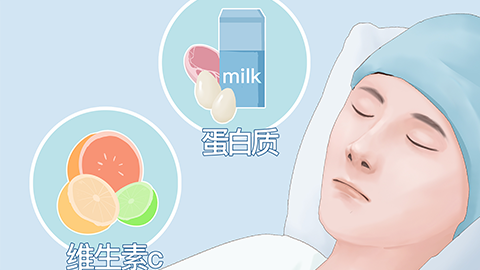What to eat after chemotherapy to replenish nutrition
Generally, patients who have completed chemotherapy can replenish nutrients by consuming foods such as salmon, spinach, eggs, sweet potatoes, and pork liver. They may also use medications such as vitamin B12 tablets, batyl alcohol tablets, leucogen tablets, compound Ejiao syrup, and mecobalamin tablets according to medical advice. Detailed explanations are as follows:

1. Salmon
Salmon is rich in high-quality protein. Its omega-3 fatty acids have anti-inflammatory properties that can reduce inflammation caused by chemotherapy and help protect the cardiovascular system, which is particularly beneficial for patients whose bodies are weakened after chemotherapy.
2. Spinach
Spinach is rich in various vitamins, such as vitamins A, C, and K, as well as iron. Vitamins can enhance immunity and promote bodily metabolism, while iron helps prevent anemia caused by chemotherapy, providing the body with necessary nutrients and energy.
3. Eggs
Eggs are a prime source of high-quality protein and contain various essential amino acids required by the human body. With high bioavailability, they provide the building materials necessary for repairing and regenerating cells damaged by chemotherapy, helping to strengthen physical condition and improve resistance.
4. Sweet Potatoes
Sweet potatoes are high-fiber foods rich in dietary fiber, which can promote intestinal peristalsis, effectively prevent constipation caused by chemotherapy drugs, maintain normal digestive and excretory functions of the intestines, and ensure stability of the internal environment of the body.
5. Pork Liver
Pork liver is rich in nutrients such as iron and vitamin A. Iron can promote hemoglobin synthesis and improve anemia potentially caused by chemotherapy. Vitamin A helps protect vision and maintain the health of epithelial tissues, both of which are beneficial for post-chemotherapy recovery.
II. Medications
1. Vitamin B12 Tablets
Vitamin B12 tablets participate in methyl conversion and folate metabolism in the body, promoting the transformation of 5-methyltetrahydrofolate into tetrahydrofolate. A deficiency can lead to impaired DNA synthesis and affect red blood cell maturation. Chemotherapy may impair hematopoietic function; supplementing with vitamin B12 helps prevent and improve megaloblastic anemia.
2. Batyl Alcohol Tablets
Batyl alcohol tablets can increase white blood cell production and promote hematopoietic function, thereby increasing the number of white blood cells in the blood. Chemotherapy often causes leukopenia, and batyl alcohol tablets can elevate white blood cell levels and enhance the body's resistance.
3. Leucogen Tablets
Leucogen tablets are cysteine derivatives. After administration, under alkaline conditions in the duodenum, they combine with protein to form soluble substances that are rapidly absorbed by the intestines. These tablets have the function of enhancing bone marrow hematopoiesis and can prevent and treat leukopenia and thrombocytopenia caused by chemotherapy.
4. Compound Ejiao Syrup
The main components of compound Ejiao syrup include Ejiao (donkey-hide gelatin), red ginseng, cooked rehmannia, codonopsis, and hawthorn. Ejiao nourishes the blood and滋阴 (nourishes yin), red ginseng strongly replenishes vital energy, cooked rehmannia nourishes yin and enriches the blood, codonopsis benefits the spleen and lungs, and hawthorn aids digestion and improves appetite. Together, these ingredients invigorate qi and nourish blood, alleviating symptoms such as dizziness, palpitations, insomnia, and loss of appetite caused by deficiency of both qi and blood after chemotherapy.
5. Mecobalamin Tablets
Mecobalamin tablets are an endogenous coenzyme B12 that participates in the one-carbon unit cycle and plays an important role in the methyl transfer reaction during the synthesis of methionine from homocysteine. It can promote nucleic acid and protein synthesis, aid in the repair of damaged nerves, and may improve nerve damage caused by chemotherapy.
In daily life, cooking methods should preferably use steaming, boiling, and stewing, avoiding frying and deep-frying to reduce the burden on the gastrointestinal tract. Additionally, maintaining a pleasant dining environment and mood is important to stimulate appetite and ensure adequate nutrient intake.







